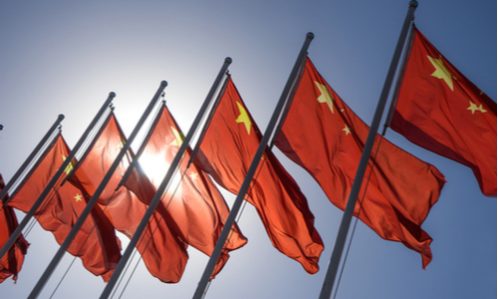
By: Liza Tobin & Addis Goldman (Project Syndicate)
In the aftermath of the Great Recession of 2008-09, there was widespread belief that China’s economy would surpass that of the United States by 2030. However, China is now grappling with various crises that threaten its economic “miracle.” To regain momentum and bolster its strategic position, China is shifting its focus from real estate to advanced industries as the primary growth engine. The US response will play a crucial role in determining the outcome of the strategic competition between the two nations and the future of the global economy.
The US economy remains vibrant, as evidenced by its swift recovery from the COVID-19 shock. A key factor behind this resilience is US leadership in artificial intelligence, which is already generating economic value across various industries and holds potential for significant productivity gains. With substantial investments in cloud infrastructure by US technology companies, the American innovation ecosystem is poised to benefit from enterprise-scale AI capabilities. As 2030 nears, these advancements could drive innovation in “deep-tech” sectors such as robotics and biotechnology.
Despite its strengths, the US economy has a significant shortfall: insufficient production capacity in advanced industries like semiconductors and clean energy, which are vital for economic competitiveness and national security. Since 1980, the US share of global high-tech goods manufacturing has plummeted from over 40% to just 18%.
While the US has experienced deindustrialization, China has risen as the world’s manufacturing superpower, transitioning from dominance in textiles and toys to leadership in advanced technologies like networking components, electrical equipment, and machine tools. China now produces more than half of the world’s electric vehicles and is projected to control over 80% of global solar-cell manufacturing capacity through 2026…
Featured News
Belgian Authorities Detain Multiple Individuals Over Alleged Huawei Bribery in EU Parliament
Mar 13, 2025 by
CPI
Grubhub’s Antitrust Case to Proceed in Federal Court, Second Circuit Rules
Mar 13, 2025 by
CPI
Pharma Giants Mallinckrodt and Endo to Merge in Multi-Billion-Dollar Deal
Mar 13, 2025 by
CPI
FTC Targets Meta’s Market Power, Calls Zuckerberg to Testify
Mar 13, 2025 by
CPI
French Watchdog Approves Carrefour’s Expansion, Orders Store Sell-Off
Mar 13, 2025 by
CPI
Antitrust Mix by CPI
Antitrust Chronicle® – Self-Preferencing
Feb 26, 2025 by
CPI
Platform Self-Preferencing: Focusing the Policy Debate
Feb 26, 2025 by
Michael Katz
Weaponized Opacity: Self-Preferencing in Digital Audience Measurement
Feb 26, 2025 by
Thomas Hoppner & Philipp Westerhoff
Self-Preferencing: An Economic Literature-Based Assessment Advocating a Case-By-Case Approach and Compliance Requirements
Feb 26, 2025 by
Patrice Bougette & Frederic Marty
Self-Preferencing in Adjacent Markets
Feb 26, 2025 by
Muxin Li